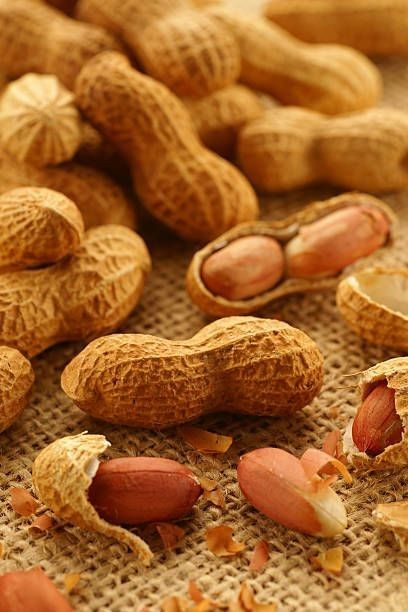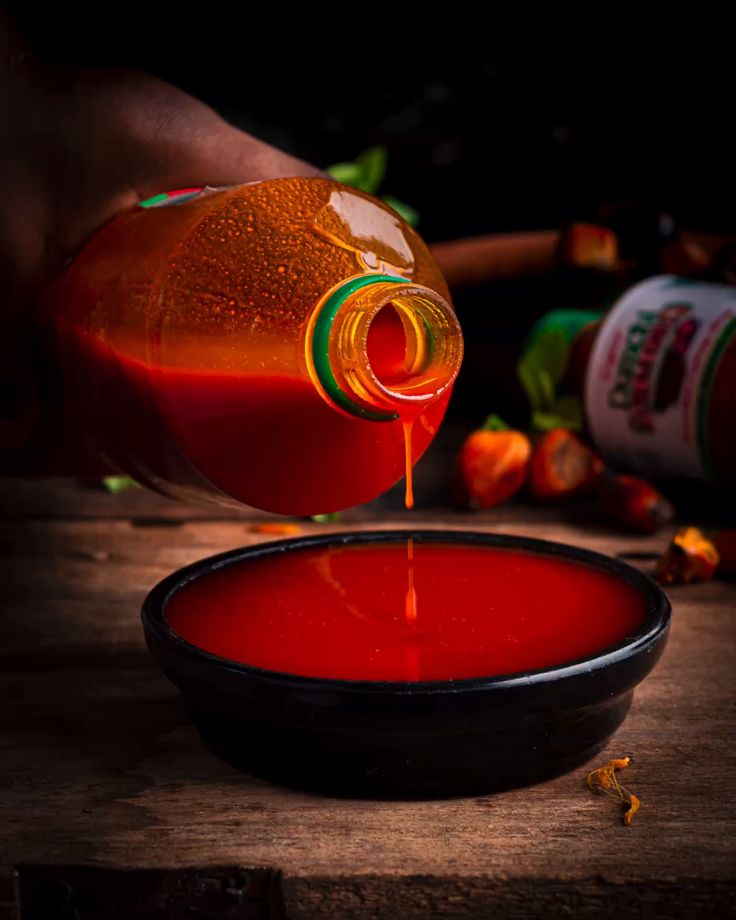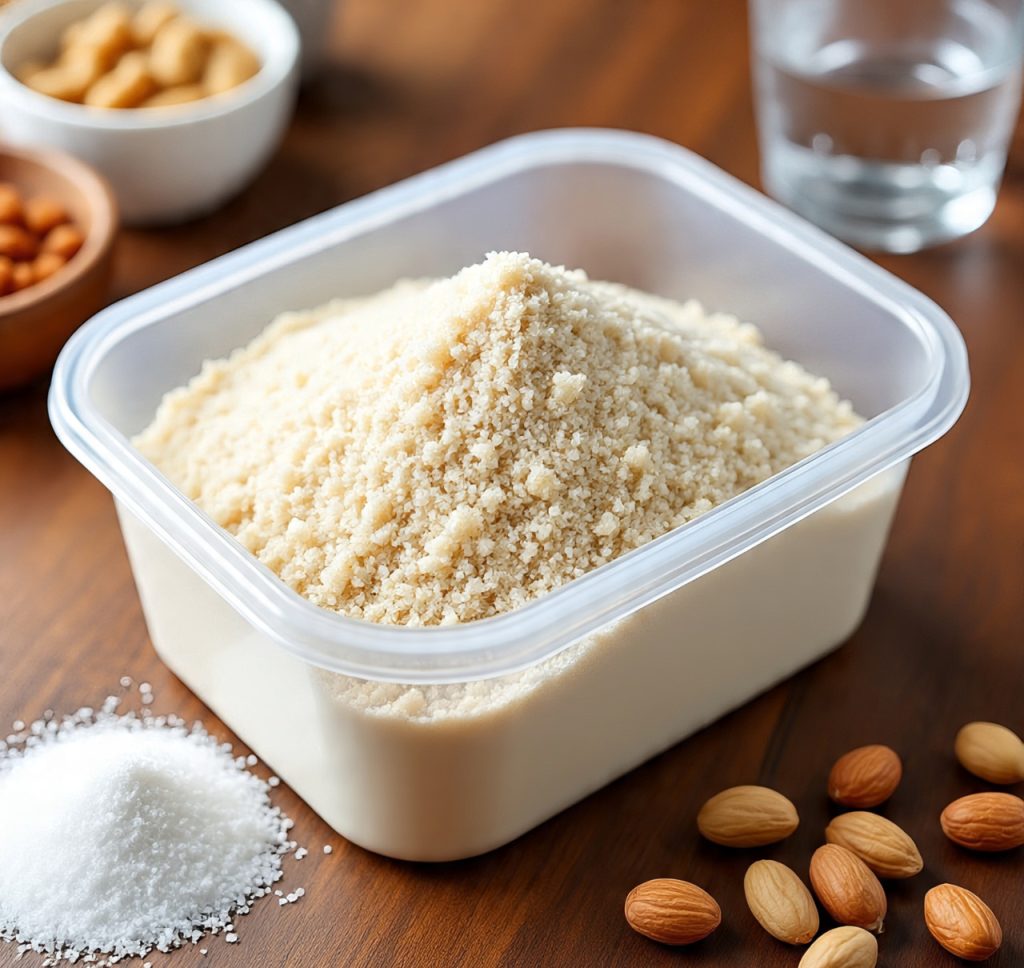Plantain flour is a finely ground powder made from dried green (unripe) plantains. It is a healthy, gluten-free alternative to wheat flour and a staple ingredient in African, Caribbean, and South American cuisines.
Its growing popularity is fueled by diaspora communities and health-conscious consumers worldwide who value its nutritional benefits, versatility in cooking, and long shelf life.
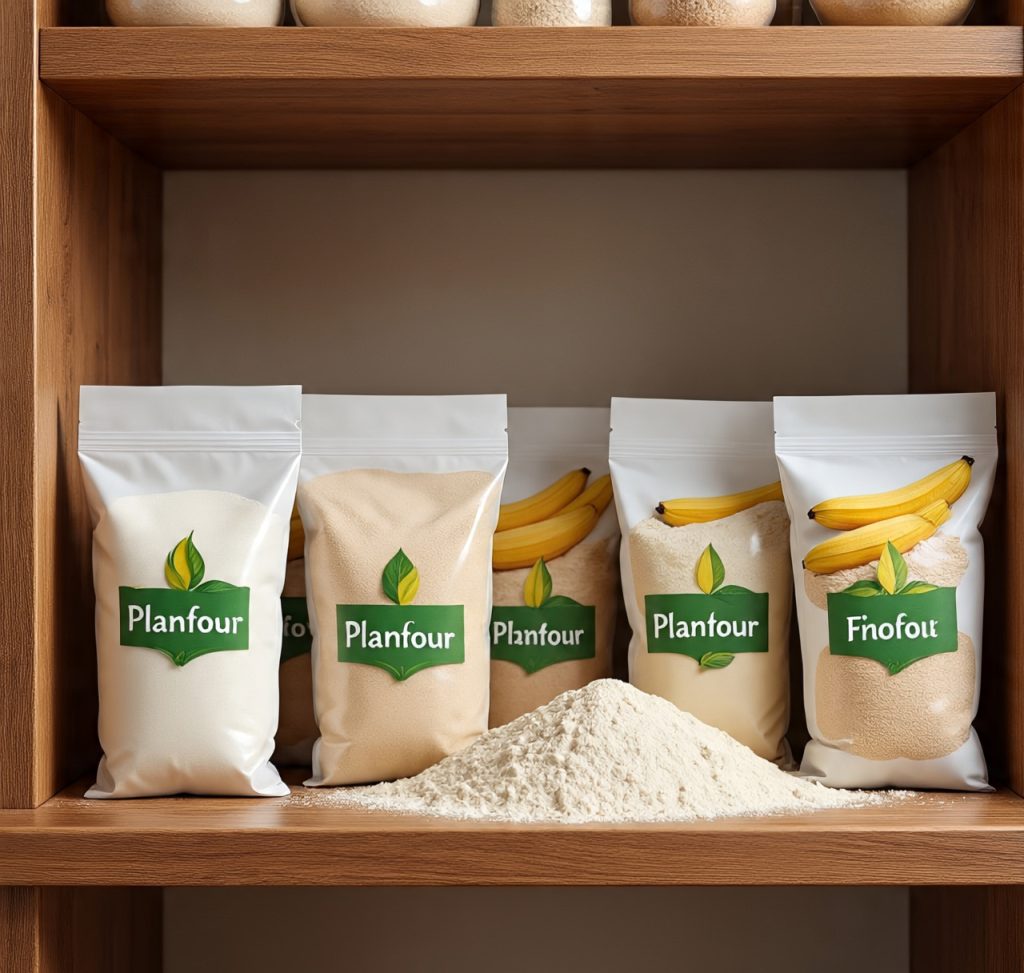
Why Plantain Flour is in High Demand
-
Gluten-Free – Perfect for people with gluten intolerance.
-
Nutrient-Rich – High in dietary fiber, potassium, and vitamins A, C, and B6.
-
Versatile – Can be used for both traditional and modern recipes.
-
Long Shelf Life – Stays fresh for months when properly packaged.
-
Cultural Staple – Essential in African and Caribbean households.
Common Uses of Plantain Flour
-
Traditional Meals – Prepared into swallow (amala plantain) and eaten with soups.
-
Baking – Used in bread, pancakes, muffins, and pastries.
-
Baby Food – Easy-to-digest ingredient for infant cereals.
-
Healthy Diets – Popular in keto, paleo, and gluten-free recipes.
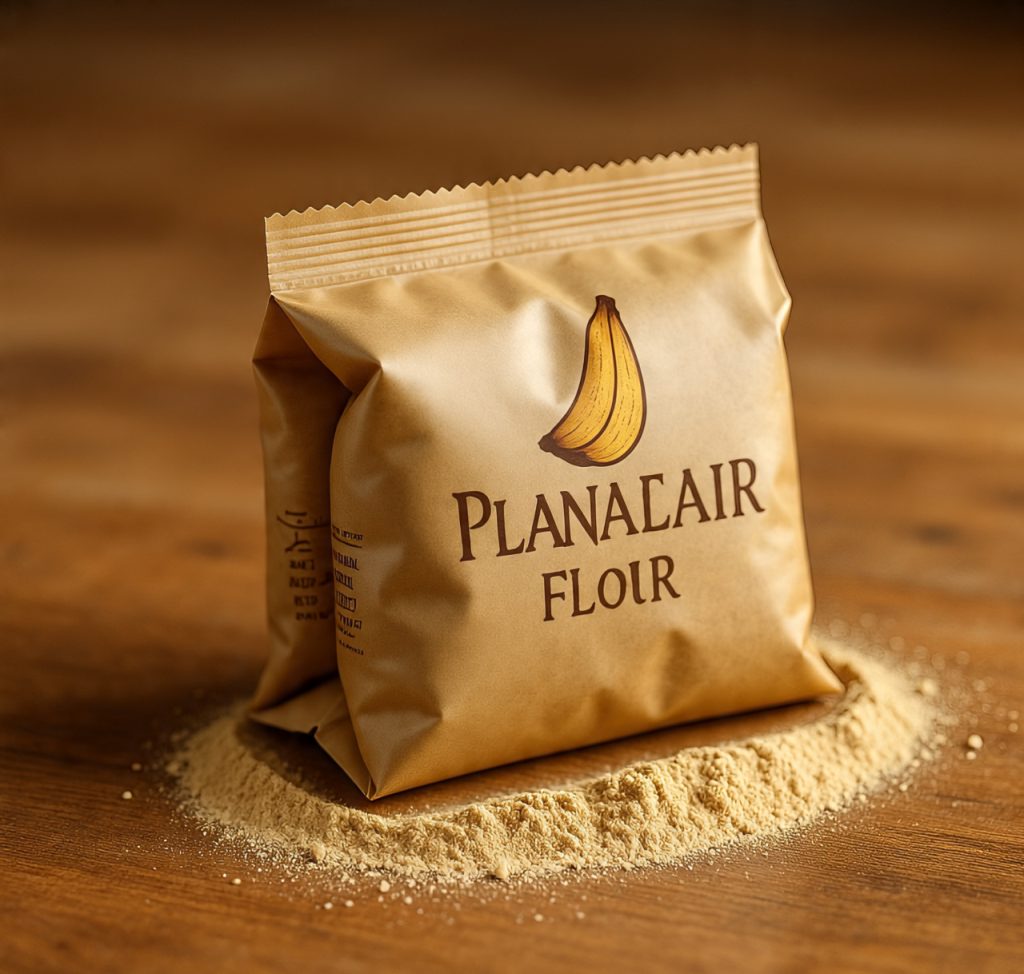
Popular Export Types of Plantain Flour
-
Pure Green Plantain Flour – 100% unripe plantains.
-
Mixed Plantain Flour – Blended with yam or cassava flour for unique taste.
-
Fortified Plantain Flour – Enriched with vitamins and minerals.
Major Importing Markets
-
North America – USA, Canada (African, Caribbean, and specialty food stores).
-
Europe – UK, Germany, Netherlands, France (ethnic markets and supermarkets).
-
Middle East – UAE, Saudi Arabia, Qatar (diaspora and gourmet stores).
-
Asia-Pacific – Australia, Singapore, Malaysia (specialty and health food shops).
Export Processing Steps
-
Selection – Harvesting healthy, unripe plantains.
-
Peeling & Washing – Removing the skin and dirt.
-
Slicing & Drying – Cutting into thin slices and drying to low moisture.
-
Milling – Grinding into fine powder.
-
Sieving – Ensuring smooth, uniform texture.
-
Packaging – Moisture-proof and export-compliant labeling.
Quality Standards & Export Requirements
-
Moisture Content – Below 12% to prevent mold and spoilage.
-
Hygiene Standards – Compliance with HACCP and ISO guidelines.
-
Nutritional Labeling – Must meet importing country requirements.
-
Organic Certification – Increases market value for health-conscious buyers.
Why Plantain Flour Export is Profitable
-
High Retail Prices Abroad – Can sell for 3–5x domestic price in diaspora markets.
-
Dual Market Appeal – Loved by both cultural consumers and health enthusiasts.
-
Low Waste Processing – High yield from fresh plantains.
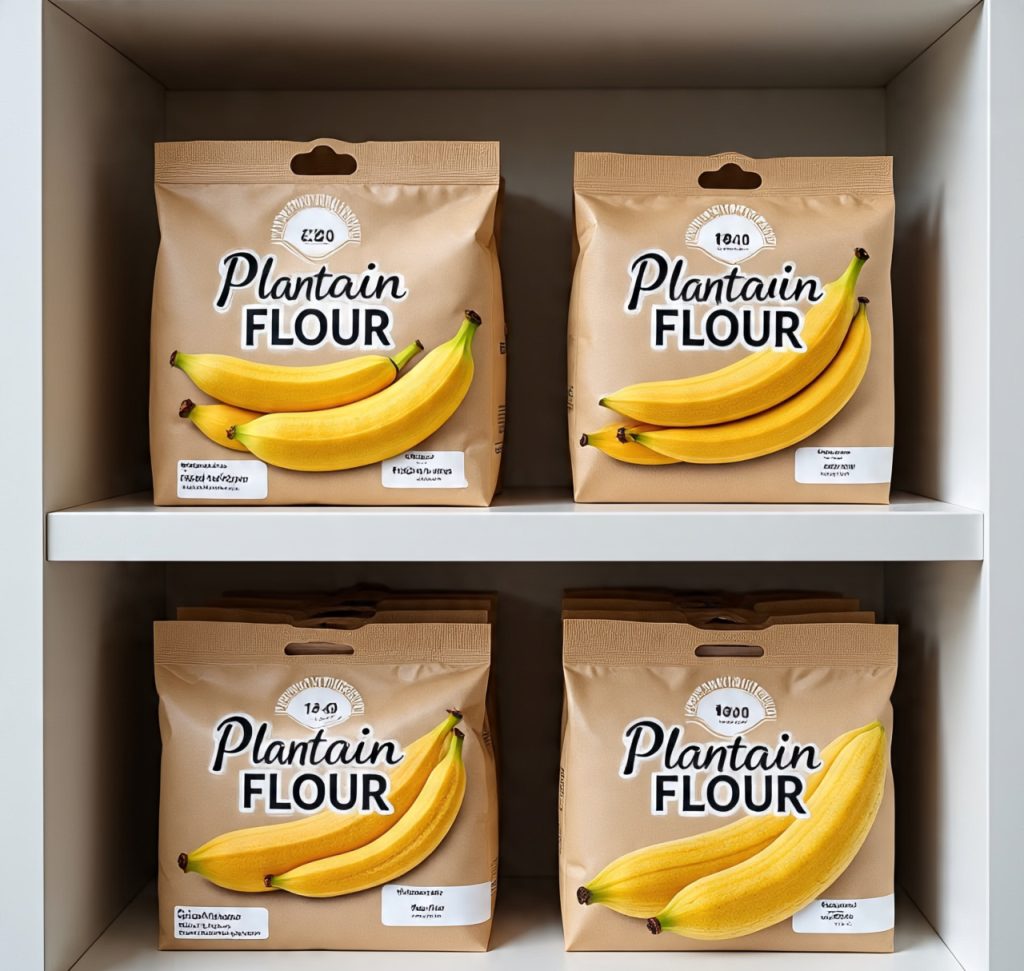
IMEN GREEN GLOBAL LIMITED Advantage
We supply premium plantain flour made from freshly harvested unripe plantains, processed under strict food safety conditions to preserve nutrition and freshness.
We offer:
-
Bulk & Retail Packaging.
-
Organic & Fortified Options.
-
Custom Branding for International Buyers.
-
Worldwide Delivery with Reliable Shipping Partners.
Conclusion:
Plantain flour is a nutritious, versatile, and culturally significant product with strong export potential. By ensuring consistent quality, attractive packaging, and competitive pricing, exporters can build long-term relationships with both retail and wholesale buyers worldwide.




